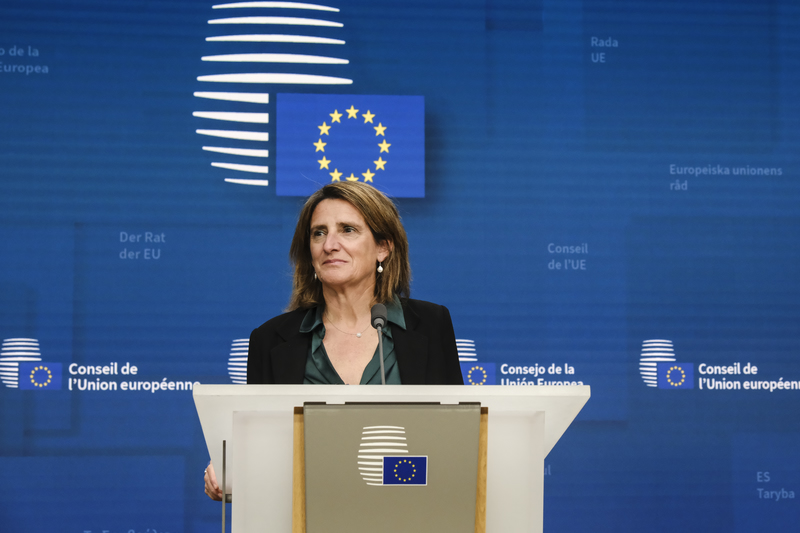Teresa Ribera, an EU executive vice president, has condemned member states’ move to delay the bloc’s deforestation rules by a year and reopen the law.
“I cannot hide my deep disappointment and frustration. This is a bad decision and I feel sad. Tracking deforestation is key to prevent it and to count on a reliable instrument to facilitate sound carbon markets and trustful forest funds,” Ribera said on social media on Thursday.
Deputy ambassadors agreed on revisions to the EU deforestation regulation (EUDR) on Wednesday, clearing the way for further changes to the law next year. The legislation bans the sale on the EU market of products such as cocoa, livestock, coffee, palm oil, wood and rubber if linked to deforestation.
Germany’s position won broad support, centring on a “simplification review clause” requiring the Commission to carry out a simplification review and present a report by 30 April 2026, which could “where appropriate” include a legislative proposal.
Ribera, who oversees the clean transition, has repeatedly pushed back against efforts to reopen the EUDR – even disagreeing Environment Commissioner Jessika Roswall. In September, Ribera warned Brussels not to revisit the rules and promised to resolve concerns around the IT platform, which Roswall cites as the reason for reopening the law.
The Commission’s October compromise is widely viewed as a halfway deal between the cabinets of Ribera and Roswall, several sources familiar with the talks told Euractiv.
Spain was the most outspoken opponent of further delays and revisions, three diplomats said, backing the Commission’s original plan to delay implementation only for small companies and make minor simplifications. Only Spain, Belgium and the Netherlands refused to support the compromise text on Wednesday.
(aw)r

